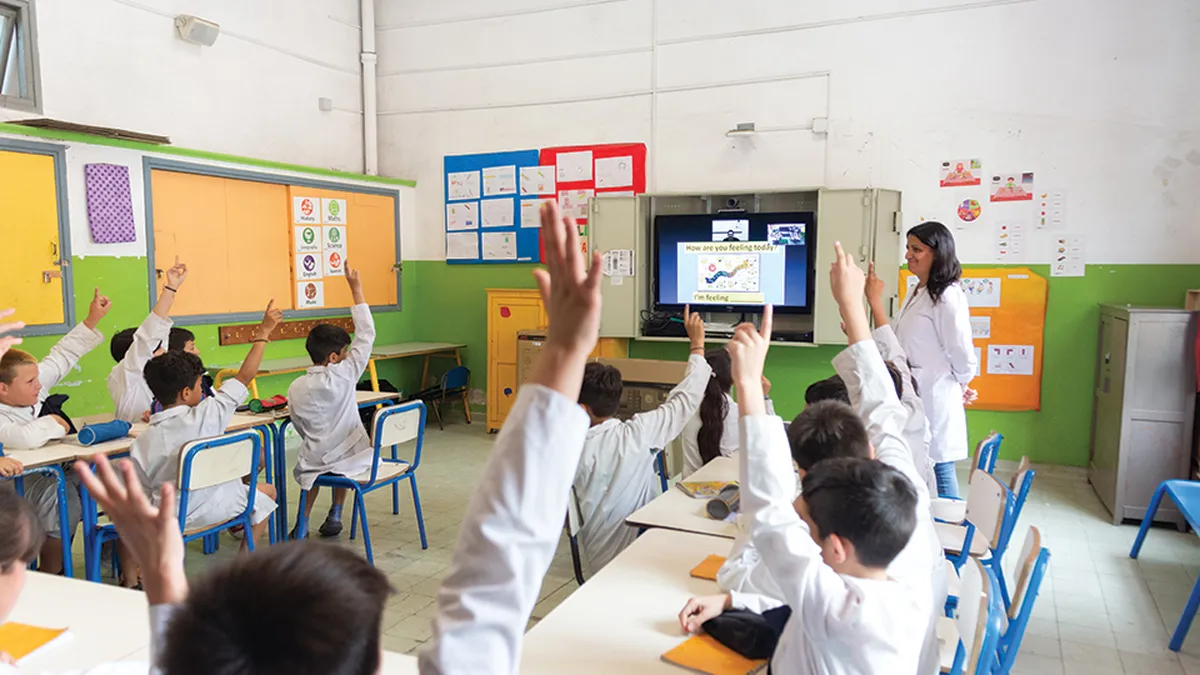The presidential candidate for the National Party (PN), Alvaro Delgadomade the presentation of the education plan for the Uruguay, However, some specialists in the area questioned some of the proposals made by the politician, especially the economic incentive.
Yesterday the candidate made the formal presentation of the plan accompanied by his running mate, Valeria Ripoll and the current Minister of Education and Culture, Pablo da Silveira. There, he announced “two ideas to impact education”: a financial bonus to encourage the completion of high school and the universalization of full-time or extended primary and early childhood education.
However, the first of them was not very well received by specialists in the area. “It does not have a sustained impact on learning. And the problem of Uruguay is that graduation has to be a result of learning achievements,” he said. Renato Opertti, professor of UCU specialized in Education, to Telemundo.
“It is the young people themselves who have to feel motivated and committed to what they do, and it is not through monetary means that we achieve this,” he stressed.
In this sense, he added that the importance lies in the quality of the education offered. “We achieve this by giving them an educational proposal that they love, that enchants them, that stimulates them, that they can connect knowledge, that they can connect attitudes, skills, interests. Naturally, some kind of support incentive can be thought of, but the central thing is not that incentive; the central thing is the quality of the educational proposal,” he assured.
For his part, the president of the National Institute for Educational Evaluation (INEED), Javier Lasida, He commented that money is not enough for young people to finish their studies. “I believe that money is not enough for educational continuity under any circumstances; the educational system, the educational center, needs to first generate a relevant proposal for the students; second, mechanisms of accompaniment and support for those students who have more difficulties, and who are eventually receiving this financial support as an incentive to continue their education,” he explained.
Delgado’s proposal
The first proposal of Slim, As his eventual Minister of Economy had already announced, Diego Labat, is the implementation of a economic bonus for young people from the two poorest quintiles to finish high school. “The goal for 2030 is for 66% of young people to graduate from high school Upper Secondary Education. Today we are at 52%, it is possible but there is still a long way to go,” he said.
He also stressed that in the two poorest quintiles of the country, the average completion rate barely exceeds 30%, mainly due to not having the material conditions to continue their education. Therefore, “as a form of support for the completion of high school studies, shock support is proposed” for these young people.
“Any young person from these two segments who wants to complete the 5th or 6th year of high school can apply for this program that will provide them with follow-up and a financial bonus to finish high school,” the measure establishes.
The bonus, meanwhile, would be 13,000 Indexed Units (IU)equivalent to 79,093 pesos at current value, for young members of households in the first two quintiles who finish 5th grade before age 18; and 26,000 UI (158,186 pesos) for young members of households in the first two quintiles who finish 6th grade before age 20. The total estimated cost of the measure is 32 million dollars in its initial stage, although it could double if there is an equal jump in the number of students who finish secondary school.
The second measure proposed at the educational level by the Delgado-Ripoll formula It involves the universalization of primary and initial full-time or extended-time education for the first two quintiles, with the aim of responding to a need of the poorest households in the country.
At the level of Primary, The implementation would take place through the extension of pedagogical time, through the transformation of ordinary schools into extended-time schools and full-time schools.
In the arguments, the proposal of Slim points out that “evidence shows that full-time schools perform better in terms of educational outcomes” and that “the demographic dynamics”, With a drop in enrollment due to lower birth rates, this creates the ideal scenario for increasing investment per student. This would have an estimated cost of 40 million dollars per year for operations plus 150 million dollars for one-time works.
Source: Ambito




